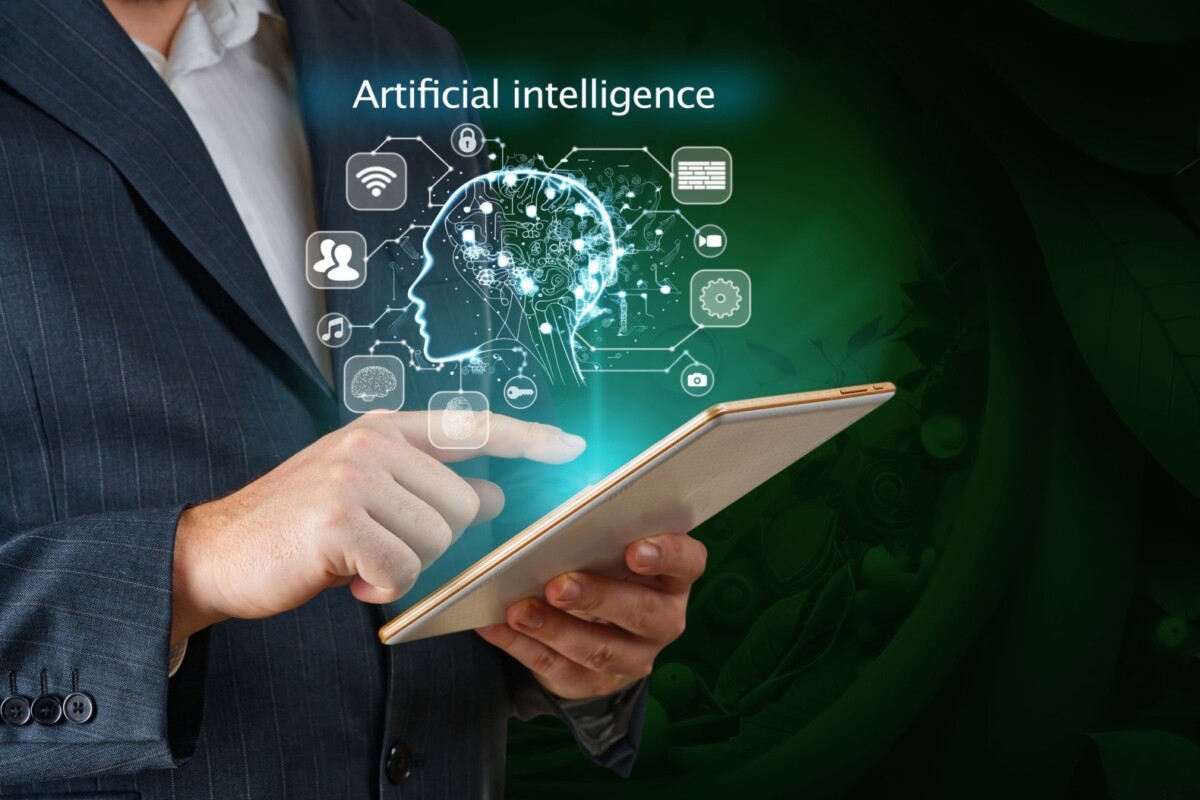
In 2025, the landscape of education is rapidly evolving, and understanding data science, AI, and machine learning is becoming essential for educators. These technologies not only enhance teaching methods but also empower educators to personalize learning experiences. By embracing data science and AI, teachers can unlock new pathways for student success, making it crucial to explore the best courses available.
The Power of Data Science and AI
Imagine being able to tailor lessons to meet each student’s unique needs. With data science and AI, educators can analyze student performance and adapt their teaching strategies accordingly. This approach, known as differentiated education, helps every learner thrive.
Benefits of Learning Machine Learning
- Enhanced Teaching Techniques: Learn how to implement AI tools that can assist in grading and feedback.
- Improved Student Engagement: Use data insights to create more engaging and relevant content.
- Collaboration Opportunities: Join instructional rounds with peers to share insights and strategies for integrating these technologies into the classroom.
Unlock your potential with online degrees—Learn more!
Top 5 Data Science Courses Tailored for Educators

In today’s fast-paced world, grasping data science and AI is essential for educators. These fields not only improve teaching methods but also equip students with vital future skills. As we explore the best courses for 2025, consider how they can enhance your approach to differentiated education and instructional rounds.
1. Data Science for Educators
This course covers the basics of data science, teaching you to analyze student data effectively for personalized lessons.
2. AI in the Classroom
Discover how AI can facilitate personalized learning and engage students through innovative teaching tools.
3. Machine Learning Essentials
This course simplifies complex machine learning concepts, making them accessible for all educators.
4. Data-Driven Decision Making
Learn to use data to shape your teaching strategies with practical applications you can implement right away.
5. Advanced Analytics for Educators
For deeper insights, this course teaches advanced analytics techniques to interpret data trends and enhance student outcomes. By enrolling in these courses, educators can boost their skills and foster a more effective learning environment. Embrace the future of education with data science and AI!
How Machine Learning is Revolutionizing Teaching Methods
In 2025, educators are discovering the transformative power of data science and AI. These technologies are not just buzzwords; they are reshaping how we teach and learn. By understanding machine learning, teachers can create more personalized experiences for their students, making learning more effective and engaging.
Personalized Learning Experiences
Machine learning helps educators tailor lessons to meet the diverse needs of their students. With differentiated education, teachers can analyze data to understand each student’s strengths and weaknesses. This way, they can provide customized resources that cater to individual learning styles.
Enhancing Instructional Rounds
Instructional rounds are a great way for teachers to observe and learn from each other. By integrating AI tools, educators can gather insights on classroom dynamics and student engagement. This data-driven approach allows for more informed discussions and improvements in teaching strategies, ultimately benefiting all students.
The Role of AI in Personalized Learning: Courses to Consider
In 2025, understanding the role of AI in personalized learning is crucial for educators. With the rise of data science and machine learning, teachers can tailor their instruction to meet the unique needs of each student. This not only enhances learning but also fosters a more engaging classroom environment.
Key Benefits of AI in Education
- Differentiated Education: AI helps educators create customized learning experiences for students of all abilities.
- Data-Driven Insights: Courses in data science provide teachers with tools to analyze student performance and adapt their teaching strategies accordingly.
- Instructional Rounds: Engaging in instructional rounds allows educators to observe and implement AI strategies effectively in their classrooms.
To dive deeper into this exciting field, consider enrolling in courses that focus on AI and machine learning. These courses not only equip educators with essential skills but also empower them to leverage technology for better student outcomes. By embracing these innovations, teachers can transform their classrooms into dynamic learning spaces.
Data Science for Educators: Essential Skills and Knowledge
In today’s fast-paced world, understanding data science and AI is crucial for educators. As technology evolves, so does the need for teachers to grasp these concepts. The best data science and AI courses for educators in 2025 can empower them to enhance their teaching methods and engage students effectively.
Why Educators Need Data Science Skills
Data science and machine learning are not just for tech experts. Educators can use these tools to create differentiated education experiences. By analyzing student data, teachers can tailor their lessons to meet individual needs, ensuring every student thrives.
Key Courses to Consider
- Introduction to Data Science: Learn the basics of data analysis and visualization.
- AI in Education: Discover how AI can personalize learning experiences.
- Machine Learning Fundamentals: Understand the principles behind machine learning and its applications in the classroom.
These courses will equip educators with the knowledge to implement instructional rounds effectively, fostering a collaborative learning environment.
Exploring Online Platforms: Where to Find the Best AI Courses
In 2025, finding the best data science and AI courses for educators is crucial. As technology evolves, so does the need for teachers to integrate data science, AI, and machine learning into their classrooms. This knowledge not only enhances teaching but also prepares students for a tech-driven future.
Popular Online Learning Platforms
- Coursera: Offers courses from top universities, focusing on practical applications of AI and data science.
- edX: Provides a variety of courses tailored for educators, emphasizing differentiated education strategies.
- Udacity: Known for its nano-degree programs, it dives deep into machine learning and AI. These platforms not only provide quality content but also foster instructional rounds among educators.
By collaborating and sharing insights, teachers can effectively implement what they learn, creating a richer learning environment for their students.
Hands-On Learning: The Importance of Practical Experience in Data Science
In 2025, the landscape of education is rapidly evolving, especially in fields like data science and AI. For educators, understanding these technologies is crucial. The best data science and AI courses empower teachers to incorporate machine learning into their classrooms, enhancing differentiated education for all students.
Why Practical Experience Matters
When it comes to data science, theory alone isn’t enough. Educators need hands-on experience to truly grasp concepts. This practical approach helps them teach effectively, making complex ideas accessible to students.
Key Benefits of Hands-On Learning
- Real-World Applications: Engaging in projects allows educators to see how data science and AI impact everyday life.
- Improved Instructional Rounds: With practical skills, teachers can collaborate better during instructional rounds, sharing insights and strategies.
- Enhanced Student Engagement: When educators are confident in their skills, they inspire students to explore data science and AI enthusiastically.
Incorporating these experiences into teaching not only enriches the curriculum but also prepares students for future careers in technology.
Unlock your potential with online degrees—Learn more!
What Makes a Course Stand Out? Key Features to Look For
In 2025, selecting the best data science and AI courses for educators is essential due to the rapid technological advancements. These courses help teachers understand data science, AI, and machine learning, enabling them to provide differentiated education for all students.
Practical Applications
Courses should emphasize real-world applications, allowing educators to implement concepts directly in their classrooms for more engaging learning experiences.
Supportive Community
A strong community is crucial. Courses offering instructional rounds or collaborative projects foster peer learning and innovative teaching strategies.
Flexible Learning Options
Flexible learning options, like self-paced modules or live sessions, help busy educators balance professional development with teaching responsibilities.
Comprehensive Curriculum
Look for courses that cover a wide range of topics, from foundational concepts to advanced techniques in data science and AI, preparing educators for various classroom challenges.
Expert Instructors
Courses led by experienced instructors provide valuable insights and guidance, enriching the learning experience with real-world perspectives.
Integrating AI and Data Science into Your Curriculum: Strategies and Resources
Integrating AI and data science into your curriculum is essential for educators in 2025. As technology rapidly evolves, understanding these concepts helps teachers prepare students for future careers. By embracing data science, AI, and machine learning, educators can create a more engaging and relevant learning experience.
Start with Professional Development
- Enroll in online courses focused on data science and AI.
- Attend workshops that emphasize differentiated education strategies.
Collaborate with Peers
- Use instructional rounds to observe and share best practices.
- Form study groups to discuss how to implement AI in your lessons.
Utilize Available Resources
- Explore free online platforms like Coursera and edX for courses.
- Incorporate tools like Google AI and data visualization software into lessons.
By integrating these strategies, educators can enhance their teaching methods and inspire students to explore the exciting world of AI and data science.
How CollegeAndTuition.com Can Enhance Your Learning Journey in Data Science and AI Courses.
In 2025, the demand for data science and AI skills is skyrocketing, especially for educators. Understanding these technologies can transform how you teach and engage with students. By exploring the best data science and AI courses, you can enhance your teaching methods and provide differentiated education that meets diverse learning needs.
Tailored Learning Experience
With CollegeAndTuition.com, you can find courses that cater specifically to educators. These courses focus on practical applications of data science, AI, and machine learning, ensuring you gain relevant skills that can be applied in the classroom.
Community Support
Joining a community of fellow educators allows for collaborative learning. You can participate in instructional rounds, share experiences, and gain insights from others who are also navigating the world of data science and AI.
Flexible Learning Options
Whether you prefer online classes or in-person workshops, CollegeAndTuition.com offers flexible options. This means you can learn at your own pace, making it easier to balance your professional development with your teaching responsibilities.
Unlock your potential with online degrees—Learn more!
FAQs
1. What is data science?
Data science is the field of analyzing, interpreting, and extracting insights from large sets of data using tools from statistics, programming, and machine learning.
2. How is AI different from machine learning?
Artificial Intelligence is the broader concept of machines simulating human intelligence, while machine learning is a subset that allows machines to learn from data and improve over time.
3. What are common programming languages used in data science and AI?
Python and R are the most widely used languages due to their strong libraries for data analysis and machine learning.
4. Do I need a math background for machine learning?
Yes, a basic understanding of statistics, linear algebra, and calculus helps in grasping machine learning concepts and algorithms.
5. What industries use data science and AI?
Almost every industry, including healthcare, finance, marketing, retail, manufacturing, and technology, uses data science and AI for decision-making, automation, and predictions.
6. What’s the difference between supervised and unsupervised learning?
Supervised learning uses labeled data to train models, while unsupervised learning finds patterns or groupings in data without labels.





